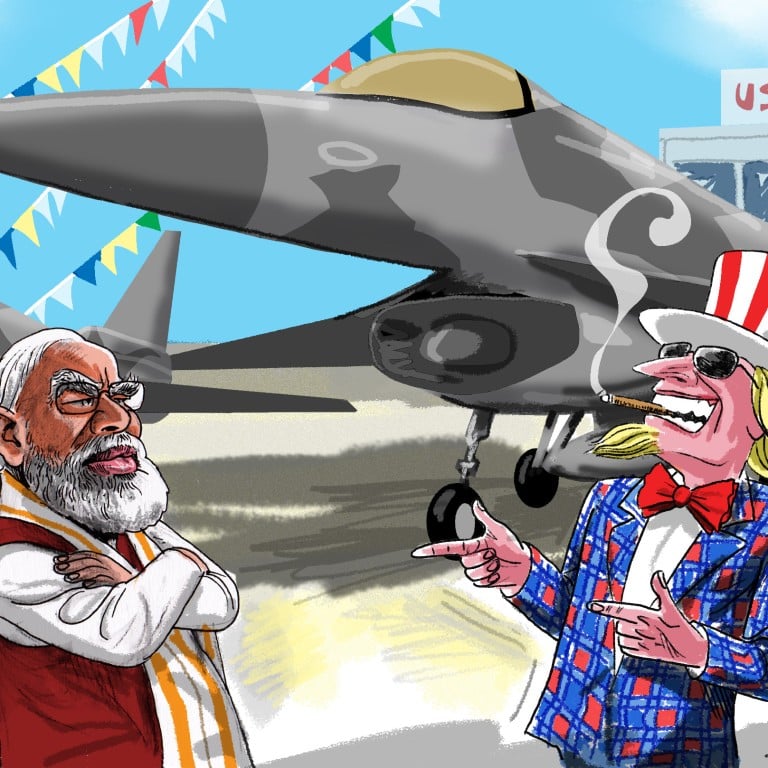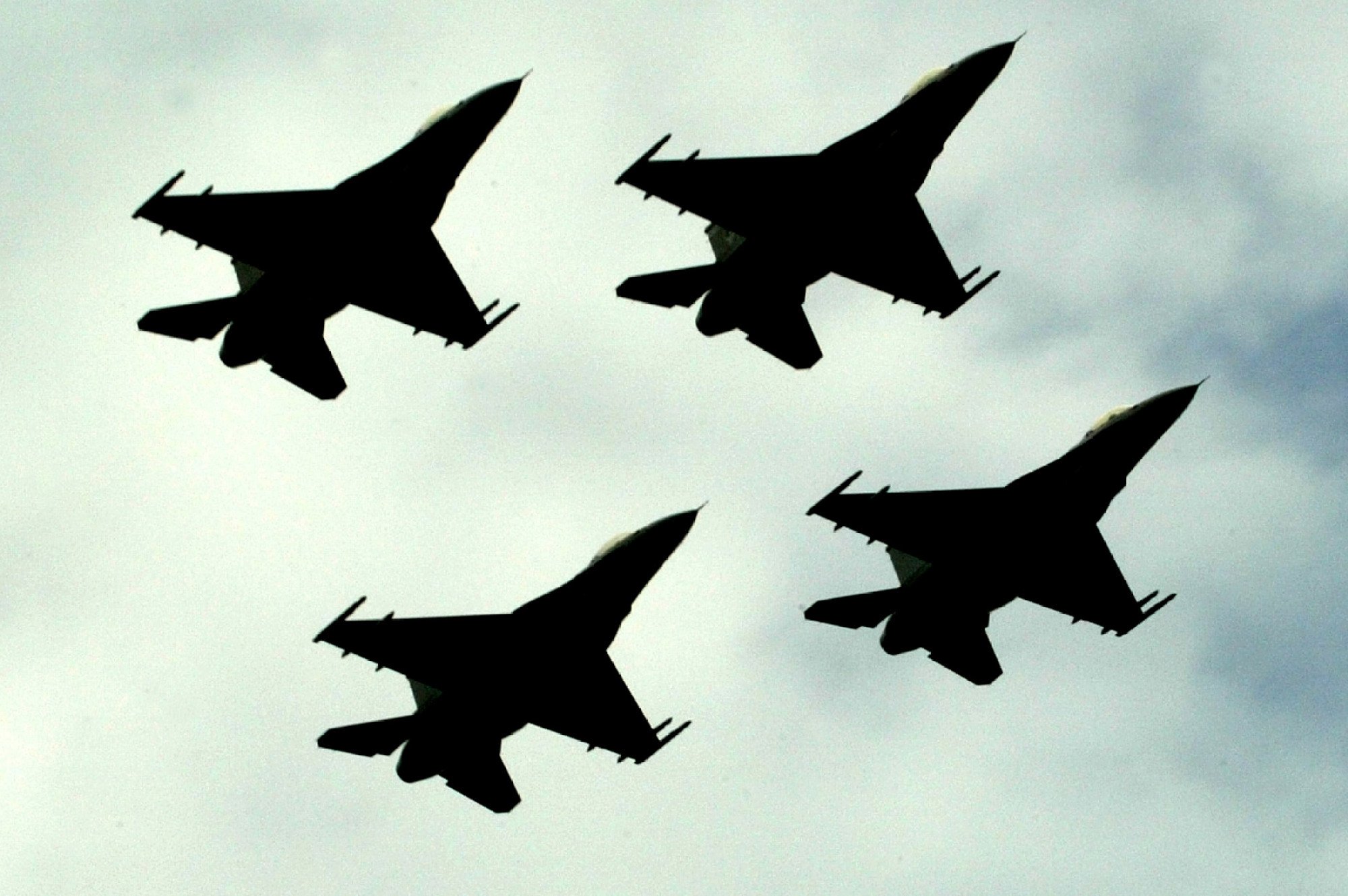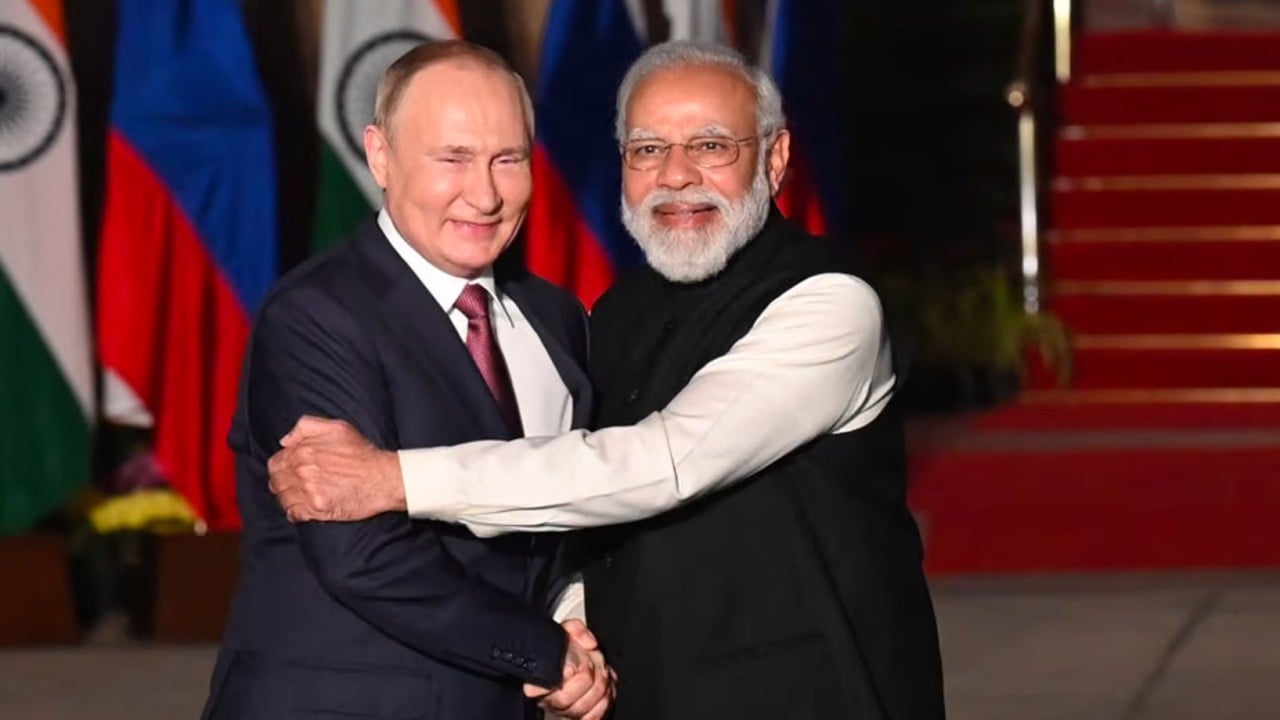
Blowback over Pakistan F-16 deal highlights limits of India’s closer ties with US
- The India-US relationship has transformed from estrangement to one of engagement and is now touted as one between partners and friends, but all is not well
- New Delhi’s anger over Washington’s upgrades for Pakistan’s jet fighters is the latest example of US foreign policy clashing with India’s core security interests
The conviviality was clearly effective. In a joint press conference, the two men were upbeat about the current level of cooperation. Jaishankar noted that, “In today’s meeting, we discussed our political coordination, working together in plurilateral and multilateral formats and exchanging assessments on collaborating on important regional issues and global challenges. I would specifically mention the Ukraine conflict and the Indo-Pacific situation in that regard.”
In his remarks, Blinken explained the US decision on the F-16s: “These are not new planes, new systems, new weapons. It’s sustaining what they have. We have a responsibility and an obligation to whomever we provide military equipment to make sure that it’s maintained and sustained.”
The prickly matter was laid to rest, and both ministers discussed a range of other issues that included the turbulence engendered by the war in Ukraine and its global geoeconomic and geopolitical fallout, including its impact on the situation in the Indo-Pacific. Jaishankar said the Ukraine conflict had many consequences, including “the prospect of instability in the Indo-Pacific, because today Asia and the Indo-Pacific is so central to global trade and particularly in some very critical areas”.

Pakistan has long held great significance inside the Washington Beltway. There appears to be a widely shared belief among US policy professionals that the White House lives with the duplicity of the Pakistan military to ensure Islamabad does not move totally into the Chinese orbit, thereby bringing about a “Red Quad” grouping of China, Russia, Pakistan and Iran.
Will Pakistan’s Taliban ties blunt its crackdown on anti-India jihadists?
India’s reticence to become a formal military ally of the US is deeply embedded in its political and strategic culture, but it is also the most vulnerable in the Indo-Pacific strategic triangle where it is linked with the US and China. India joining either camp would tilt the strategic balance emphatically, to the detriment of the other, but there is no easy or clear choice.
As Blinken pointed out, the US was India’s largest trading partner in 2021, with US$157 billion in bilateral trade, with China a close second. India needs to expand its trade and investment options with all potential partners to improve the socio-economic conditions of its vast population. The convulsions from the Covid-19 pandemic, compounded by the war in Ukraine, have added to the fiscal challenges.
In this context, there is great salience to Jaishankar’s observation in Washington that, “We are a US$2,000 per capita economy. The price of oil is breaking our back. This is our big concern.”
The US relationship is critical for India since it enables New Delhi to deal with the China challenge with greater confidence, but the F-16 episode shows the institutional limitations of ties with Washington. The India-US relationship has transformed from estrangement to one of engagement and is now touted as one between partners and friends.
A cardinal tenet of diplomacy is that there should be no rude surprises between true friends. Clearly, the US’ F-16 decision did not meet that metric.
Commodore C. Uday Bhaskar is director of the Society for Policy Studies (SPS), an independent think tank based in New Delhi


